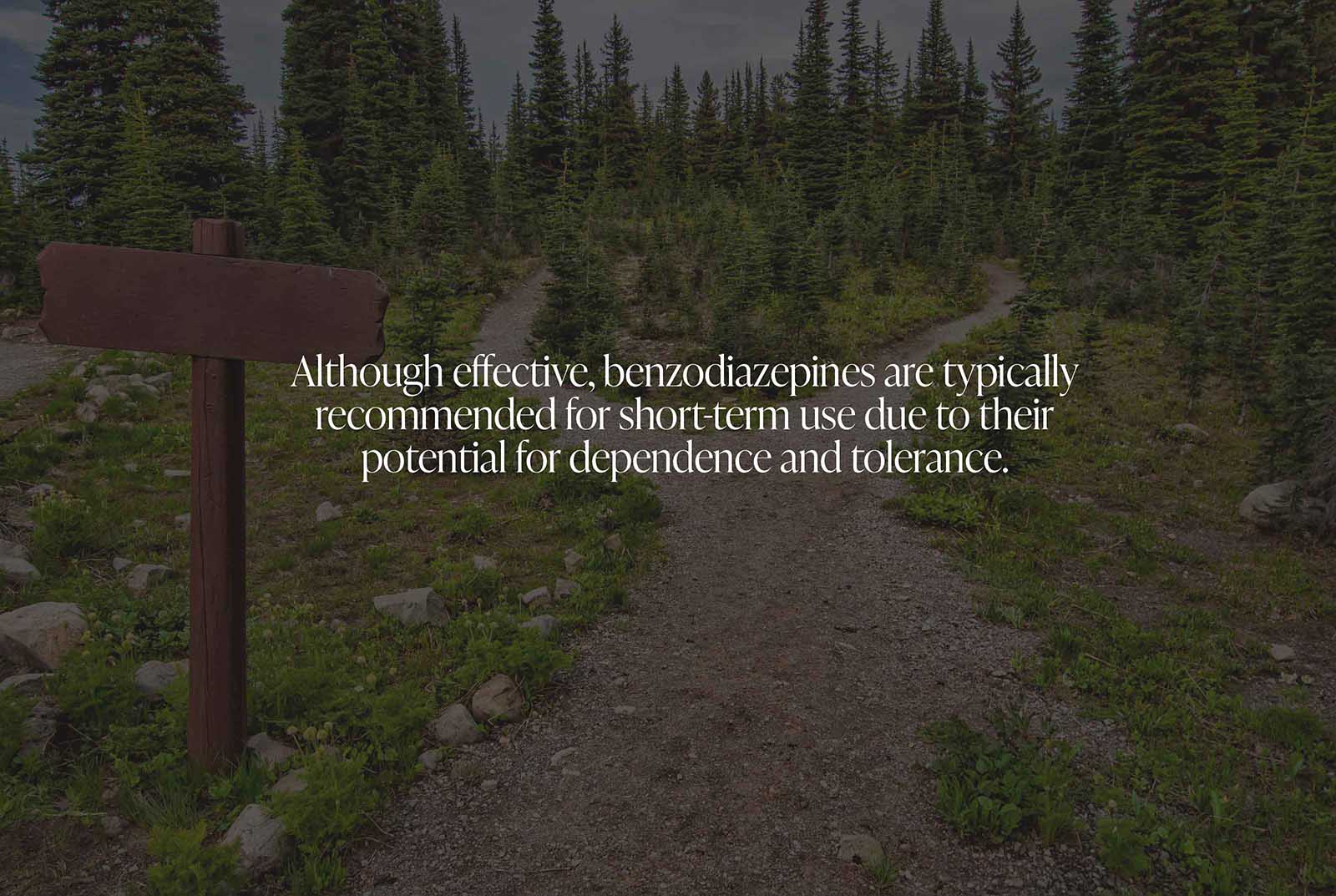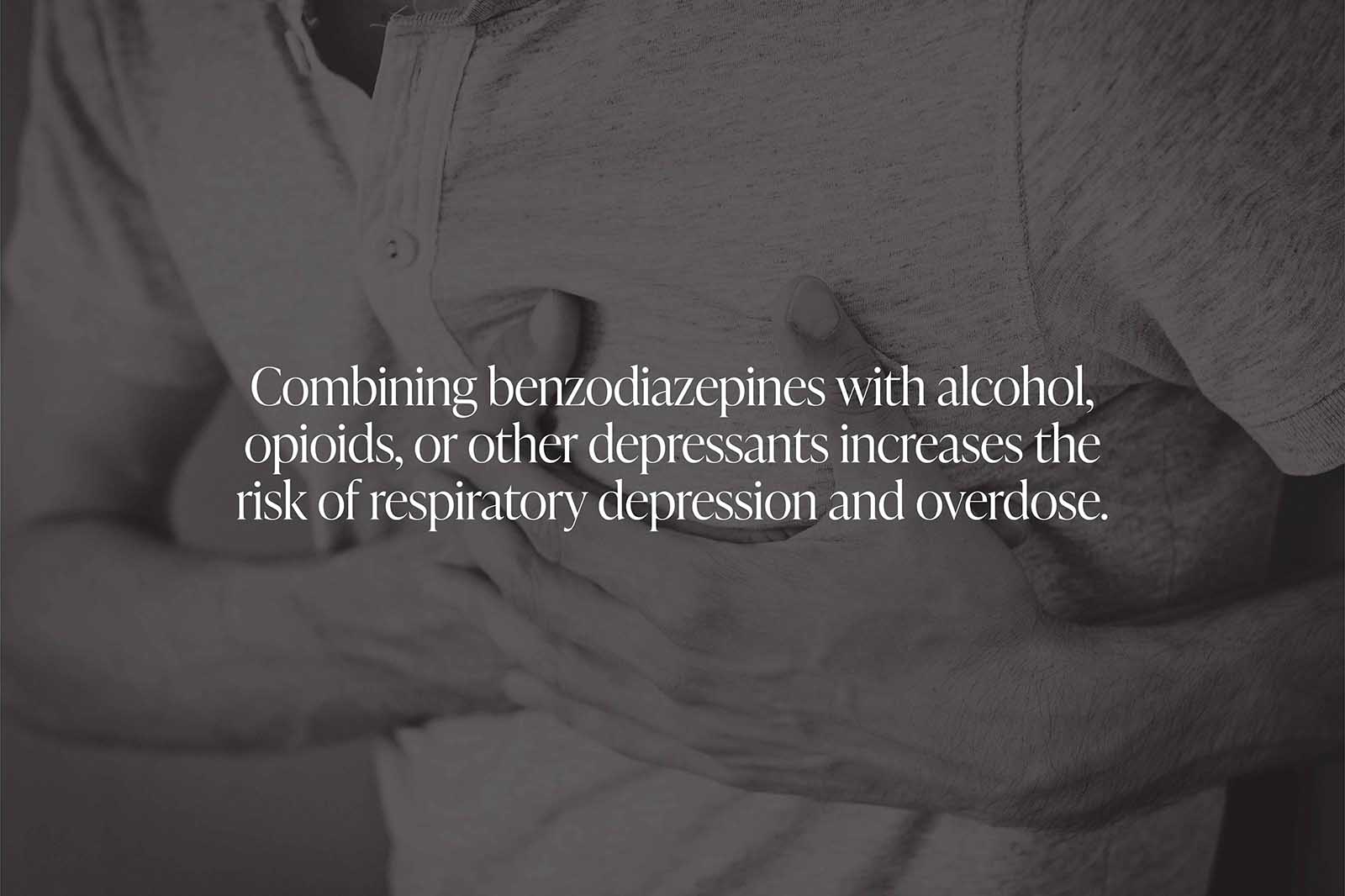Table of Contents
Benzodiazepines are a class of medications that calm the brain and nervous system. They are commonly prescribed to treat anxiety, panic disorders, muscle spasms, seizures, and insomnia. Benzodiazepines work by enhancing the effects of gamma-aminobutyric acid (GABA), a neurotransmitter that inhibits brain activity and produces a calming effect.
Common benzodiazepines include Xanax (alprazolam), Valium (diazepam), Ativan (lorazepam), Klonopin (clonazepam), and Librium (chlordiazepoxide).
How Do Benzodiazepines Work?
Benzodiazepines bind to GABA-A receptors in the brain, increasing the efficiency of GABA. This action reduces nerve activity, leading to:
- Reduced anxiety and fear
- Muscle relaxation
- Sedation or drowsiness
- Anticonvulsant effects
Because of these effects, benzodiazepines are fast-acting and often prescribed for acute conditions where rapid relief is necessary.
Why Are Benzodiazepines Prescribed?
Doctors prescribe benzodiazepines for both short-term and long-term conditions, depending on the patient’s needs:
- Anxiety Disorders: Generalized anxiety disorder (GAD), panic disorder, and social anxiety
- Sleep Disorders: Short-term relief of severe insomnia
- Seizure Management: Including epilepsy and alcohol withdrawal seizures
- Muscle Spasms: Especially from neurological conditions or injuries
- Alcohol Withdrawal: Librium and Valium are used in detox protocols
Although effective, benzodiazepines are typically recommended for short-term use due to their potential for dependence and tolerance.

What Are the Risks of Benzodiazepine Use?
While benzodiazepines offer therapeutic benefits, they carry significant risks, especially when used over a long period or without medical supervision.
1. Dependence and Tolerance
Regular use can lead to tolerance, where the body requires higher doses to achieve the same effect. Dependence develops when the brain becomes reliant on the drug to function.
2. Withdrawal Symptoms
Stopping suddenly can result in serious withdrawal symptoms, including:
- Rebound anxiety
- Insomnia
- Tremors
- Seizures
- Hallucinations
These effects can be life-threatening and often require medically supervised detox.

3. Cognitive Impairment
Long-term use may impair memory, reduce attention span, and increase the risk of dementia in older adults.
4. Overdose Risk
Combining benzodiazepines with alcohol, opioids, or other depressants increases the risk of respiratory depression and overdose. Learn more about these dangers on our benzodiazepine addiction treatment page.

Are Benzodiazepines Addictive?
Yes. Benzodiazepines can be addictive, especially when used outside of a doctor’s guidance or in high doses. Signs of addiction include:
- Craving the medication
- Taking more than prescribed
- Needing the drug to function normally
- Experiencing withdrawal when trying to stop
Because addiction can develop subtly over time, it’s important to monitor use and seek support early if signs appear.
How Benzos Compare to Opioids in the Brain
While both benzodiazepines and opioids are central nervous system depressants, they act on different receptors. Opioids target mu-opioid receptors and are primarily used for pain relief. Benzos target GABA-A receptors and are used for calming brain activity. However, mixing the two, intentionally or unintentionally, can be fatal. Learn more in what are opioids and how do they affect the body.
How Narcan Doesn't Reverse Benzodiazepine Effects
Narcan (naloxone) reverses opioid overdoses by displacing opioids from their receptors. However, it does not work on benzodiazepines. If someone overdoses on benzos, supportive care and respiratory support are required. To understand how Narcan functions, read how does Narcan work in overdose situations.
Can Relapse Happen with Benzodiazepine Users?
Yes. Benzodiazepine relapse is common, particularly among individuals with anxiety or sleep disorders who return to use for symptom relief. Relapse prevention strategies involve behavioral therapy, lifestyle changes, and sometimes non-addictive medication alternatives. Learn more in what does it mean to relapse and how can you prevent it.
What Role Does Methadone Play in Benzodiazepine Recovery?
Methadone is primarily used for opioid addiction but can appear in polydrug abuse cases where individuals use both opioids and benzodiazepines. Treating co-occurring substance use requires integrated care. Visit our methadone addiction treatment page for information.











